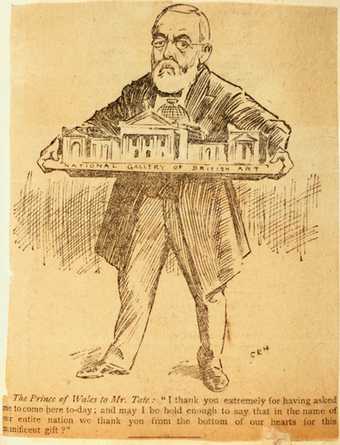Dear Henry Tate,
It has taken decades, and the efforts and enthusiasm of many individuals, to make Tate what it is today. In a continuation of this, our new publication Tate Etc. carries your name – with an additional ‘Etc.’. This publication has Tate as its starting point – its exhibitions, the collection, its events and projects – but also extends far beyond the boundaries of the four galleries.
Published three times a year, Tate Etc. will not only include in-depth articles by a wide variety of writers from different professional fields and geographical locations, but will also, like Tate, work as a place for thinking and experiencing art. It has a strong conversational element in the form of interviews and discussions, and gives a voice to artists. Within these articles, we blend the historic, the modern and the contemporary to show that art does not exist in a vacuum, but is rooted in many traditions.
Several elements will work as a series – for instance, the poet Paul Farley’s visits to the Tate archive in Behind the Curtain and MicroTate, where we ask people to write about a detail of a work in the galleries. The ideas behind the features will sometimes flow into future issues. For example, in issue two, there will be a conversation between curator Lynne Cooke and architect Rem Koolhaas – an expansion of our current piece on Art and the Sixties.
When you were striving to set up a national gallery for your collection, you wrote about ‘the pleasure of feeling that justice would be done to British art and gratification bestowed on millions of this and future generations’.
Your wishes became a reality, and now, more than 100 years later, we see Tate Etc. as a natural extension of your founding vision.
Bice Curiger and Simon Grant


